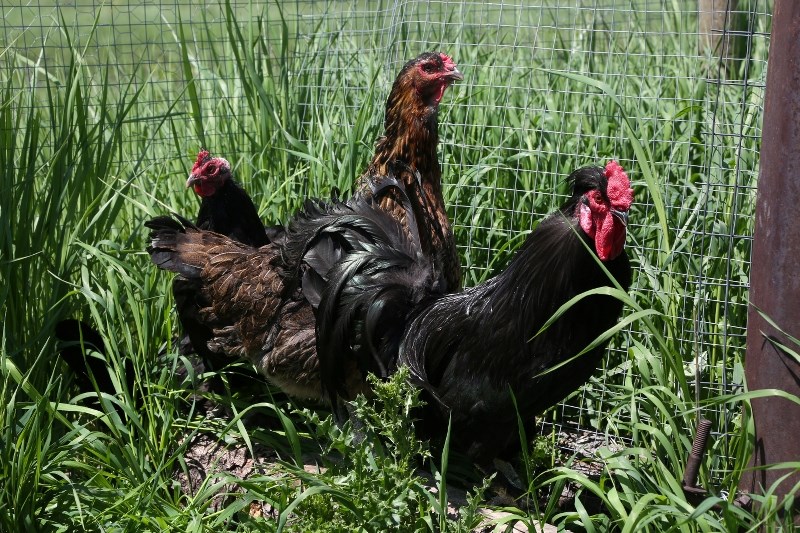The fate of urban chickens in Turner Valley is on the table until next month when council is set to decide whether or not to allow its residents to have hens in their backyards.
Turner Valley town council is slated to make the decision at its Oct. 19 meeting after receiving a report from Bridget Lacey, the Town’s administrative assistant of legislative services, on its year-long backyard hen pilot project that began Sept. 1, 2014.
Lacey told council at its Sept. 21 meeting that some changes should be made if it were to allow hens.
Participant suggestions include increasing the 100 square-foot maximum for coops to allow more space for hens, eliminating the one-metre property-line setback unless it’s adjacent to another residence, increasing the allowable birds from four to six and reducing the number of inspections.
“You shouldn’t need to check them more than once a year,” said Lacey, adding four inspections in one year was redundant.
Lacey provided the results of the quarterly inspections she and a local peace officer made at the two participating households, one which housed three hens and the other four, saying they complied with the rules and the birds were well cared for.
“The hens looked happy and healthy and well fed,” she said.
Surveys sent to 12 neighbouring residences, of which eight responded, reported no unpleasant odors, noise or increased predators, said Lacey.
“There were no negative responses,” she said. “Most people said that it was a lot quieter than a barking dog.”
The first year did present some challenges, including keeping the coops warm in the winter and cool in the summer, said Lacey. She said this will need to be addressed if backyard hens are allowed.
“When they design these coops, heating and cooling is going to be a major issue for these homeowners,” she said, adding hens affected by the cold were molting and laying fewer eggs.
Coun. Dona Fluter said if council does allow residents to have backyard hens, education is key.
“The reality is you’ve got to know what you’re doing or you’re not going to be successful,” she said. “I did not see anything that said they were required to get some sort of an educational piece. They have to know what they’re doing.”
Mayor Kelly Tuck requested that administration use Lacey’s report to draft a plan to bring to council’s next meeting.
Pilot project participant Margaret Krichbaum hopes council will approve urban hens permanently. The Canadian Liberated Urban Chicken Klub (CLUCK) member was among those to propose the idea to the Towns of Black Diamond and Turner Valley last year.
The Town of Black Diamond will present its results to council next month.
“I would like to see it finalized and included into the animal bylaw as a normal thing,” said Krichbaum. “I’ve really enjoyed having them. For me they’re pets. The personalities of the birds are really pleasant and fun - the little noises they make and when they’re chasing bugs it’s cute.”
If approved, Krichbuam would like to see changes in the inspections and fees.
“I would like to see that they reduce the inspections to simply an initial inspection so they can reduce the price from $50 to $25,” she said. “The inspections turned out to be rather repetitive. It should be complaint driven like dogs and cats.”
Krichbaum also wants the Town to change the proposed $10 per hen fee to $2 per hen each year. She compared the fee to owning cats, which costs $5 a year and $7 for an additional cat.
“A hen is living a lot shorter life than a dog or cat,” she said. “Most people are going to keep one individual hen for probably two or three years because they stop laying so much. I think they should make it in line with the animal bylaw.”
If approved, Krichbaum wants the birds to be allowed to roam in the yard, supervised, as she found the coop too warm on plus 30 degree days, and is willing to help other interested residents.




